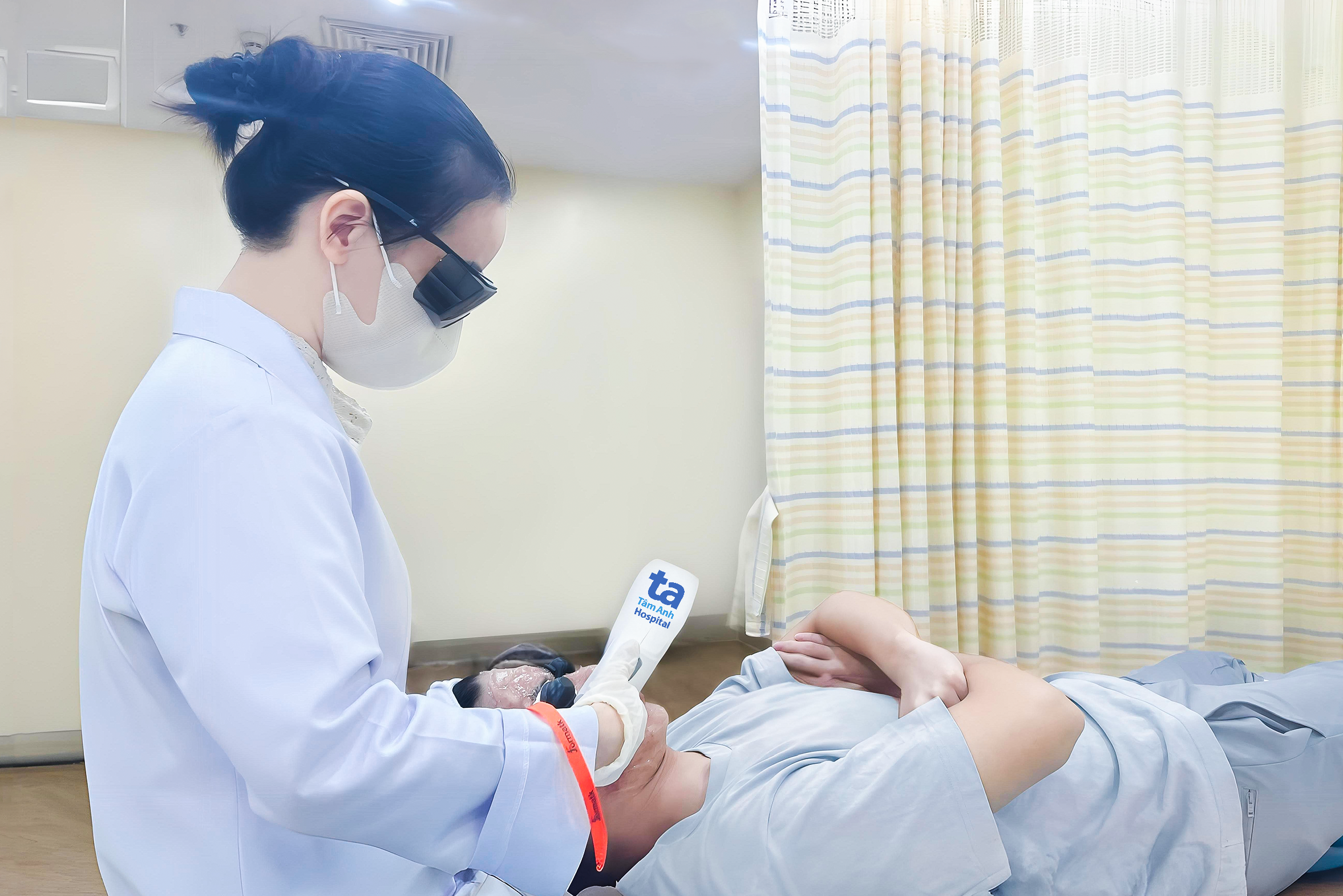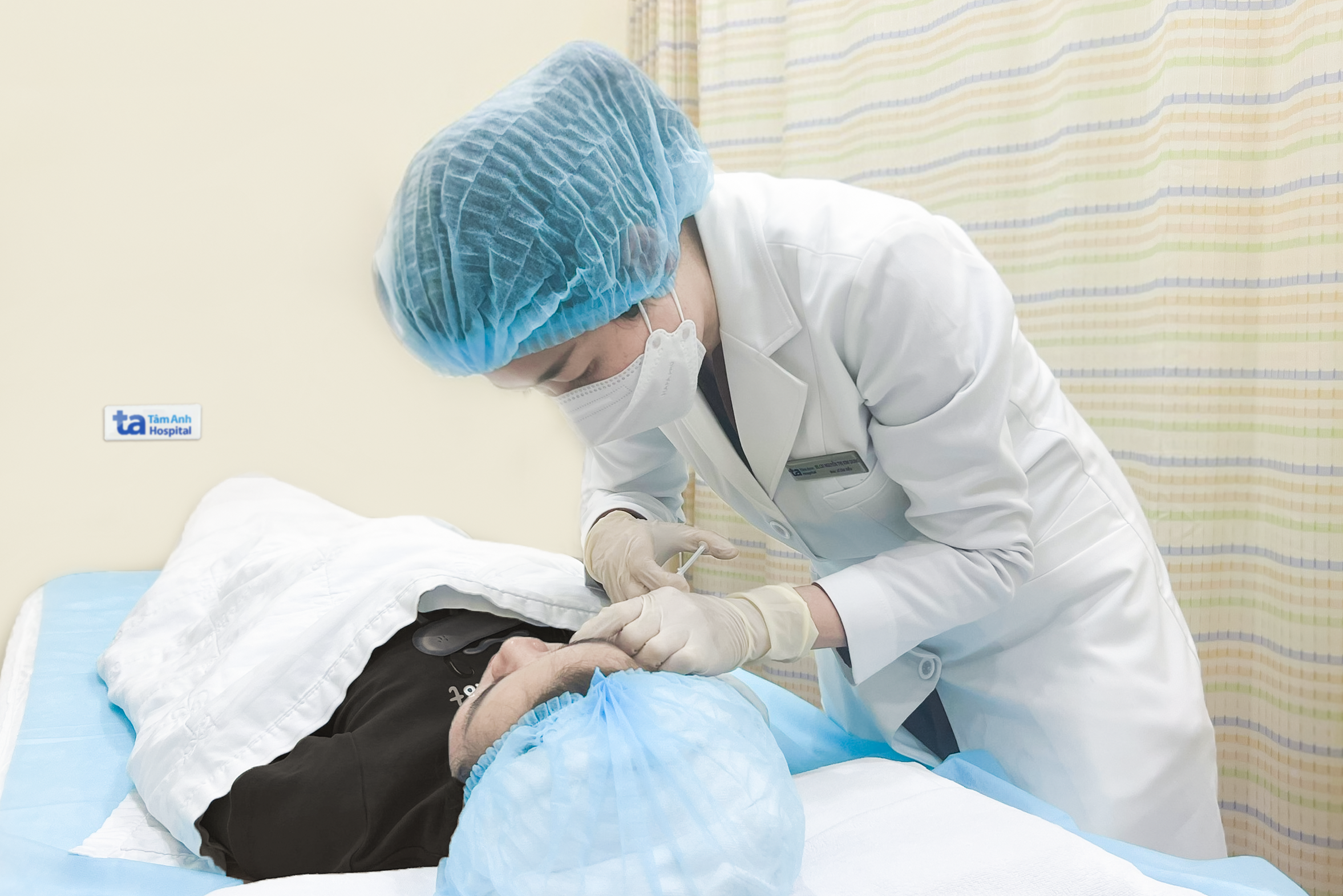Many factors can make skin look older than its actual age, according to Dr. Dang Thi Ngoc Bich, head of the Dermatology and Cosmetic Dermatology Department at Tam Anh General Hospital in Ho Chi Minh City. Spending excessive time in air-conditioned environments and insufficient water intake can lead to decreased skin moisture and elasticity, contributing to premature aging. An unhealthy diet, late nights, and stress can also disrupt hormone balance, leading to breakouts.
Prolonged and continuous exposure to blue light from electronic screens can accelerate wrinkle and dark spot formation, damaging the skin. A study published by the US National Institutes of Health (NIH) shows that blue light from devices like phones, computers, and indoor lighting significantly increases free radicals, causing oxidative stress and damaging collagen and elastin, which are essential for skin firmness and elasticity.
Sun exposure without protection, such as sunscreen, is a common factor in premature skin aging. "UV rays can break down collagen structures faster than normal aging," Dr. Bich said.
16-year-old Nhu Hung sought treatment for inflamed acne and enlarged pores. Dr. Bich observed dehydrated skin, slight loss of elasticity, and fine wrinkles around his eyes and forehead, likely due to frequent computer gaming.
Thu, a 26-year-old office worker, presented with dull skin, slight pigmentation, and appeared 5-7 years older than her actual age.
"No medication can completely erase the signs of skin aging because it's a natural and continuous process," Dr. Bich explained, adding that the goal of treatment is to slow this process, maintain healthy skin, and prolong a youthful appearance.
 |
A doctor uses IPL technology to treat Hung's acne. Photo: Hospital provided |
A doctor uses IPL technology to treat Hung's acne. Photo: Hospital provided
Dr. Bich advised Hung to use sunscreen and moisturizing products containing HA, peptides, and ceramides to restore the skin's protective barrier, increase moisture, and fill in fine lines. In addition to oral and topical medications, she incorporated IPL light therapy to reduce inflammation, treat acne, brighten skin, and gently stimulate collagen production, suitable for adolescents. After three months, Hung's skin and acne showed significant improvement.
Dr. Nguyen Thi Kim Dung, head of the Dermatology and Cosmetic Dermatology Unit, developed a combined treatment plan for Thu, incorporating restoration, sebum regulation, and skin resurfacing with topical and oral medications. Thu also received HA injections and mild chemical peels to provide deep hydration, stimulate collagen production, improve elasticity, and plump dry, pigmented areas with wrinkles. After two months, her skin became brighter and her acne reduced.
To maintain these improvements, both patients were advised to sleep early and limit blue light exposure by using SPF 50+ sunscreen daily, even indoors.
 |
Thu receives HA injections for skin rejuvenation. Photo: Hospital provided |
Thu receives HA injections for skin rejuvenation. Photo: Hospital provided
To prevent premature skin aging, Dr. Dung recommends adequate moisturizing to prevent dryness and flakiness, especially in air-conditioned environments. She suggests following the 20-20-20 rule (every 20 minutes, look 20 feet away for 20 seconds) to relax the eyes and reduce strain on the forehead and eye muscles.
She also emphasizes consuming antioxidant-rich foods like dark green vegetables, fresh fruit, and nuts, along with sufficient water intake, adequate sleep, and limiting alcohol and tobacco to support body and skin recovery. Maintaining a positive mindset, engaging in light exercise, and practicing relaxation techniques are also crucial. Regular skin checkups are recommended for timely detection and treatment of blue light damage.
Minh Huong
*Names have been changed
| At 8 PM on 1/8, the online consultation program "Healthy and beautiful skin with HA, Botox, SOFWAVE, IPL" will be broadcast on the fanpage of Tam Anh General Hospital. The program features Dr. Nguyen Thi Kim Dung, Dr. Le Nguyen Thuy Vy, and Dr. Ngo Chi Thien from the Department of Dermatology and Cosmetic Dermatology at Tam Anh General Hospital in Ho Chi Minh City. Readers can submit questions here for answers. |












